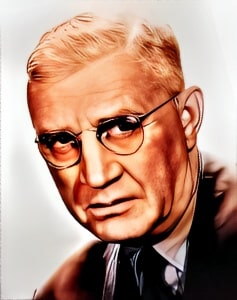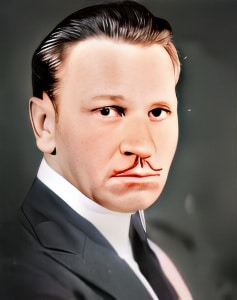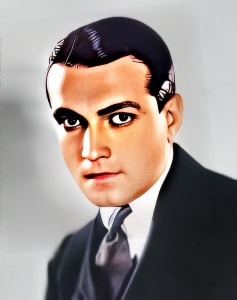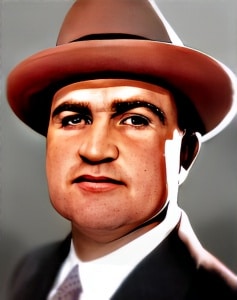 Lloyd Francis Bacon, born on December 4, 1889, in San Jose, California, was a prolific American film director and actor who made a significant impact on the early years of Hollywood cinema.
Lloyd Francis Bacon, born on December 4, 1889, in San Jose, California, was a prolific American film director and actor who made a significant impact on the early years of Hollywood cinema.
His career spanned both the silent film era and the transition to sound films, making him a versatile and influential figure in the history of American filmmaking.
Bacon’s entry into the world of entertainment began in the early 20th century when the film industry was still in its infancy. During this time, silent films reigned supreme, relying on visual storytelling and nonverbal acting to convey emotions and narratives. Bacon’s adaptability to this medium and his talent for captivating audiences through his directorial and acting abilities highlighted his prowess in the evolving field of cinema.
One of the remarkable aspects of Lloyd Bacon’s career was his work as a director. He gained recognition for his ability to helm a wide range of film genres, from comedy to drama, and his directorial skills were widely respected by both his colleagues and the audiences of his time.
Throughout his career, Bacon directed numerous silent films, and his experience in the medium allowed him to transition seamlessly into the era of sound films. The advent of sound in cinema marked a significant shift in the industry, demanding new techniques and skills from filmmakers. Bacon’s adaptability and willingness to embrace this change allowed him to remain a prominent figure in the evolving world of Hollywood.
While Bacon was celebrated for his work as a director, he also had a notable acting career. He appeared in a number of silent films, further highlighting his multifaceted talents. His on-screen performances added depth to his understanding of the art of storytelling and influenced his directorial approach.
Bacon’s directorial career reached its zenith during the 1930s and 1940s, when he helmed several successful films, many of which have endured as classics. Some of his notable works include “42nd Street” (1933), “Footlight Parade” (1933), “Wonder Bar” (1934), and his collaboration with the legendary Charlie Chaplin in “ The Vagabond” (1916).
Lloyd Bacon’s legacy extends beyond his work as a director and actor. He was known for his collaboration with iconic stars of his era, such as James Cagney, Ruby Keeler, and Charlie Chaplin. These collaborations helped elevate the performances and storytelling in the films he directed, leaving an enduring mark on the history of American cinema.
In conclusion, Lloyd Bacon, with his extensive career as a film director and actor, played a significant role in shaping the early years of Hollywood cinema. His adaptability and versatility allowed him to excel in the transition from silent films to sound films, and his notable works, including “ The Vagabond,” in collaboration with Charlie Chaplin, left an indelible mark on the history of American cinema. Bacon’s contributions to the world of entertainment remain an enduring part of the rich tapestry of Hollywood’s formative years.
Loading live eBay listings...




